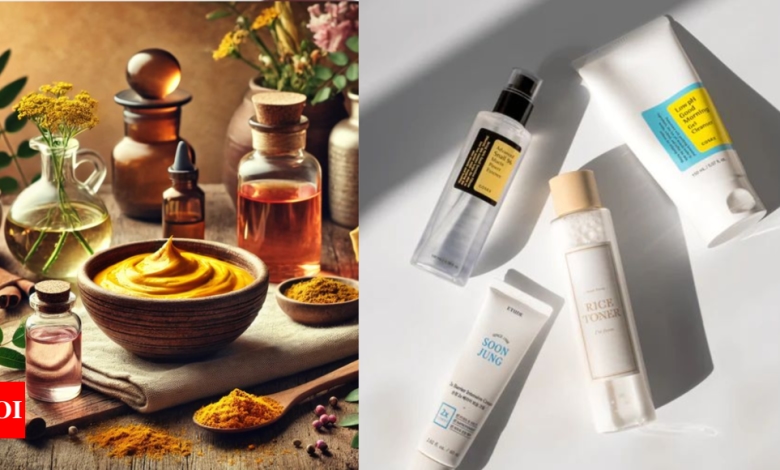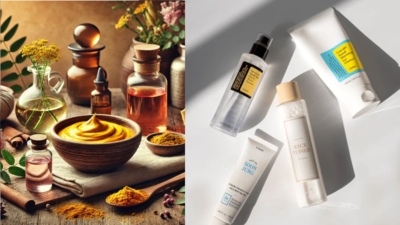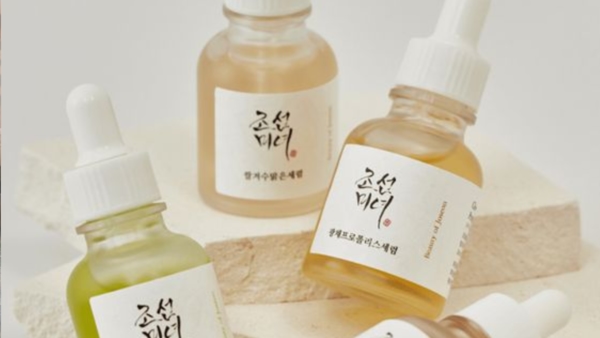Ayurvedic skin care vs Korean skincare: Which is better? |

 (Image Credits: Pinterest)
(Image Credits: Pinterest) Ayurveda is one of the ancient practices done by the Indian culture which have been re-discovered in recent years holding the secrets of natural beauty. On the other hand, Korean beauty products and hacks are also making a roar in the beauty market for their glowing glass skin texture. However, there is significant similarity in their treatment, but at the same time a sheer amount of difference. Where Ayurveda uses natural ingredients and tends to bind a balance between the skin, soul, and mind, Korean skincare opts for lab-made serums and mists for all skincare issues with a gentle touch.
Ayurvedic skincare
(Image Credits: Pinterest)
Ayurvedic skin care mainly uses natural and Indian ingredients on the skin such as neem, turmeric, multani mitti, milk, saffron, ashwagandha, and more. Ayurveda has been there for centuries and is a part of the holistic wellness philosophy that aims to bring balance to the body in a natural manner. The products and ingredients used in Ayurvedic skincare change slowly and depend upon the person’s skin type and body type as well.
Example: Usage of amla on skin and body which is rich in vitamin C, instead of using a vitamin C serum.
Korean skincare
(Image Credits: Pinterest)
Korean skincare mainly uses hydrating ingredients in their product and tries to give a more supportive skin barrier health. Their products are known to be gentle and effective and are also beneficial for sensitive skin as well. They offer anti-ageing benefits to promote skin tone and glass skin nourishment and protection at a faster rate. They have evolved from natural skincare hacks and have promoted and induced their products in the same manner.
Face waxing myths busted
Example: Introduction of rice water and mists in serums to get clear and glowing skin.
However, you can induce both in your skincare routine and over time can see the change.
Decoded- The 10-step Korean skin-care routine
Step 1: To complete your double cleansing routine, use a natural ingredient-induced cleanser such as neem face wash or sandalwood which would drive the impurities out, and then can use a water-based cleanser that removes the sweat and dirt with a lightweight texture.
Step 2: You can use a rosewater toner for this step followed by a hydrated toner which can balance the natural pH of the skin and keep your pores hydrated and fresh.
Step 3: Use a natural moisturiser that would absorb better and reduce skin issues, and prior to this you can use a serum according to your skin tone to seal the deal.
Step 4: Complete your skincare routine with a good sunscreen that would protect your skin from harmful UV rays, spots, and blemishes, and get the best of both worlds.
Source: times of india
Related Posts
- 5 foods you must have if want Korean Glass Skin
- I Asked the Coolest People I Know: What Makes an It-Girl Lip Balm?
- 7 hairstyles for women popular in 2025 weddings
- 12 Coconut Perfumes That Smell Like an Expensive Vacation (and Not Sunscreen)
- The 6 Hats Everyone Will Be Wearing Instead of Bucket Hats This Summer





